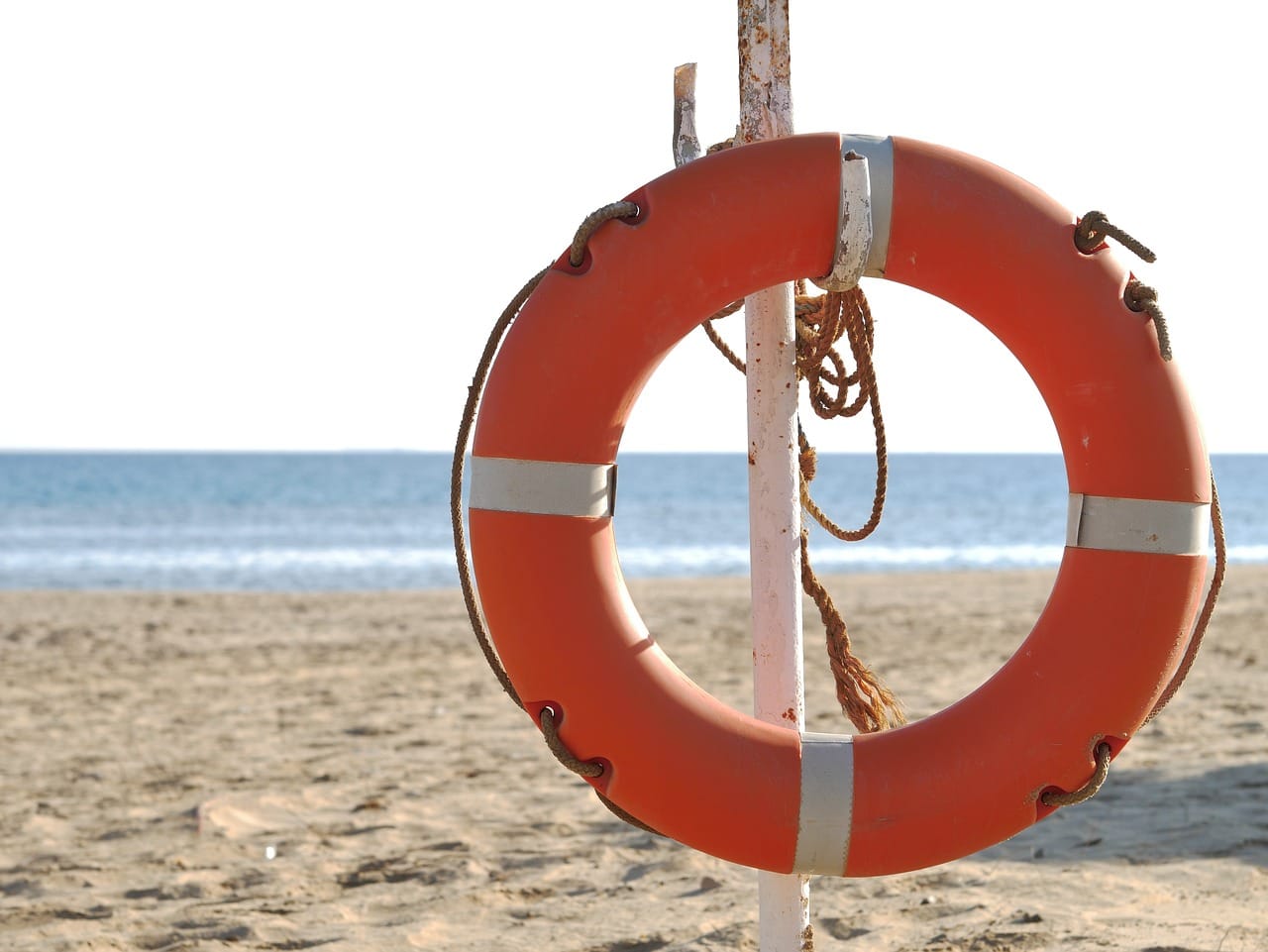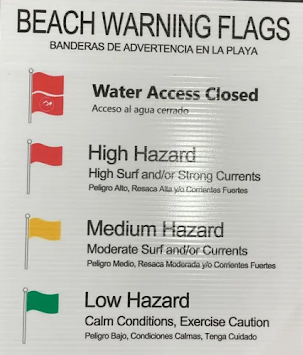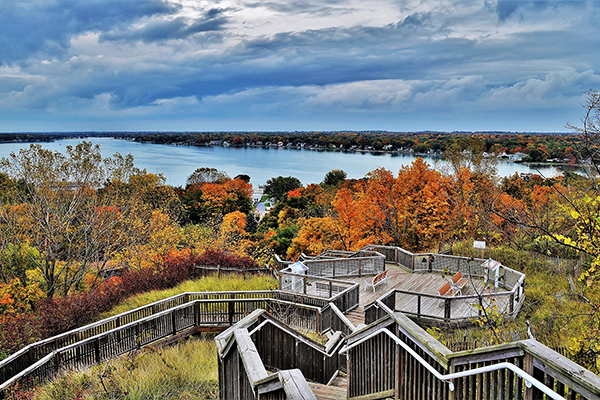'Extremely challenging': Ottawa County beaches unlikely to see return of lifeguards, citing costs
DNR officials have “ramped up focus” on signage, adding a double-red flag to the state beaches, indicating that beachgoers should stay out of the water completely.

OTTAWA COUNTY — A recently approved lifeguard program in South Haven raises the question for communities elsewhere in Michigan: Will lifeguards return to other state and county beaches?
According to local officials, the short answer for Ottawa County is “no” for the foreseeable future.
Most Michigan State Parks lifeguards were cut in 1983, and all were gone by 1991. The reasons for the discontinuance ranged from cost to difficulty of staffing and the problem of unsupervised children being dropped off at beaches, according to the Michigan Department of Natural Resources.
Officials overseeing Ottawa County state and county beaches say communities now rely more on technology, education and the accountability of those entering Lake Michigan.
Jason Shamblin, director of Ottawa County Parks and Recreation, said his department continues to promote “caution and personal responsibility when swimming in open water environments like Lake Michigan, which can present rapidly changing and sometimes hazardous conditions.”
Shamblin says bringing back lifeguards to Lake Michigan beaches is not the answer when it comes to preventing drownings.
“Lifeguarding a large and dynamic body of water such as Lake Michigan is extremely challenging. Conditions — including rip currents, wave activity, and longshore drift — can vary widely from day to day and even hour to hour,” Shamblin said.
As of July 2, there have been 26 drownings in the Great Lakes, 15 of which in Lake Michigan, according to the Great Lakes Surf Rescue Project. A majority of those lake drownings were in the Chicago area.
“These challenges, combined with the expansive shoreline and high visitation levels, make staffing and operating a lifeguard program both logistically and financially difficult. While we are always evaluating our practices and open to exploring ways to enhance public safety, there are currently no plans to initiate a lifeguard program at Ottawa County Parks beaches,” Shamblin said.
The county’s focus remains on “public education and hazard awareness,” Shamblin said, referencing the beach signage and flag system.
“We encourage beachgoers to monitor the National Weather Service to help make informed decisions. We also collaborate with local emergency responders and participate in regional water safety conversations to continuously evaluate safety practices,” he said.

State park officials shift focus
New safety precautions have been implemented at several state parks in recent years, including Grand Haven State Park, which is among the state’s most well-known beach destinations. The beach brings large crowds each summer.
There are no plans to bring lifeguards back to the state parks because it’s not “sustainable” at high-volume beaches,” said Scott Pratt, chief of southern field operations at the Michigan Department of Natural Resources, citing staffing shortages and the expansive area that would need lifeguard coverage.
Instead, Pratt said DNR officials have “ramped up our focus” on signage, adding a double-red flag to the state beaches, indicating that beachgoers should stay out of the water completely.
Currently at Grand Haven State Park, there are eight orange towers, located on the beach, that feature an easy-to-understand electronic light display that mimics the familiar double-red, red, yellow and green flag system visitors are used to seeing on the beach.
Additionally, life rings are stationed at each tower. If one of the rings is accessed to aid in helping someone in the water, 911 and park rangers will simultaneously be contacted. The towers can play pre-recorded messages to alert users to changing conditions, emergencies and other important information.
The four blue light towers, located along the sidewalk, feature a readily accessible emergency phone that park staff and visitors can press to trigger an immediate emergency response. The blue light towers are equipped with a higher-power loudspeaker, video monitoring system and a direct line to the Ottawa County 911 center.
The loudspeaker system will work in conjunction with the prerecorded messages of the orange beach towers and allow park staff to broadcast live messages.
Pratt also said rescue robots are being used in some state parks to the north. The new life-saving device is intended to be used in case of swimmer emergencies. The Emergency, Integrated, Lifesaving Lanyard (EMILY), is a high-tech piece of equipment designed to swiftly reach individuals in water emergencies and bring them to safety.
Support Our Work
Ottawa News Network is a nonprofit news service dedicated to providing the residents of Ottawa County with trustworthy, community-driven news. ONN treats journalism as a public good — something that enriches lives and empowers Ottawa County’s 300,000-plus residents to stay engaged, make informed decisions, and strengthen local democracy. Please consider giving today.
Background on South Haven’s efforts
The city of South Haven approved $55,000 related to the creation of a new lifeguard program, which is expected to roll out in phases.
The funds were approved at the Monday, June 16, South Haven City Council meeting for a contract with Double Haul Solutions to assist with the development of a lifeguard program. The discussion of bringing back lifeguards began a couple of years ago as drownings increased.
The city got rid of the original lifeguard program back in 2001, then faced litigation over two separate drownings.
Double Haul Solutions is also known for its recent work assisting Ottawa County in finding its next administrator. That process was suspended in June after all but one finalist dropped out and Double Haul said it would no longer be working with the county.
— Heather VanDyke covers northern Ottawa County for the Ottawa News Network. Contact her at newsroom@ottawanewsnetwork.org.




